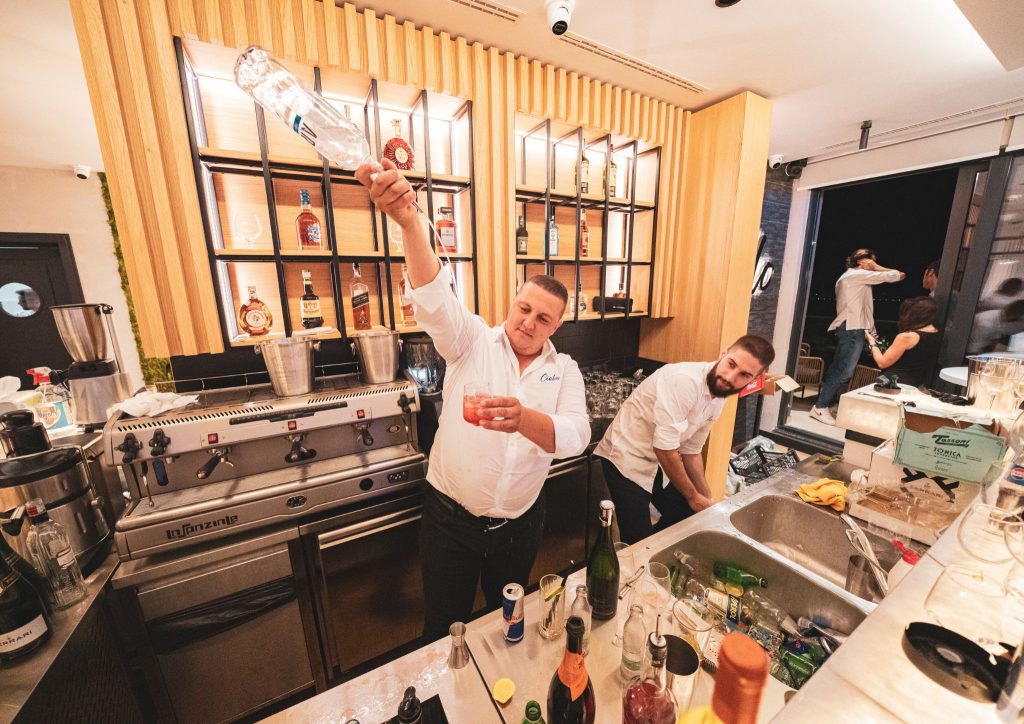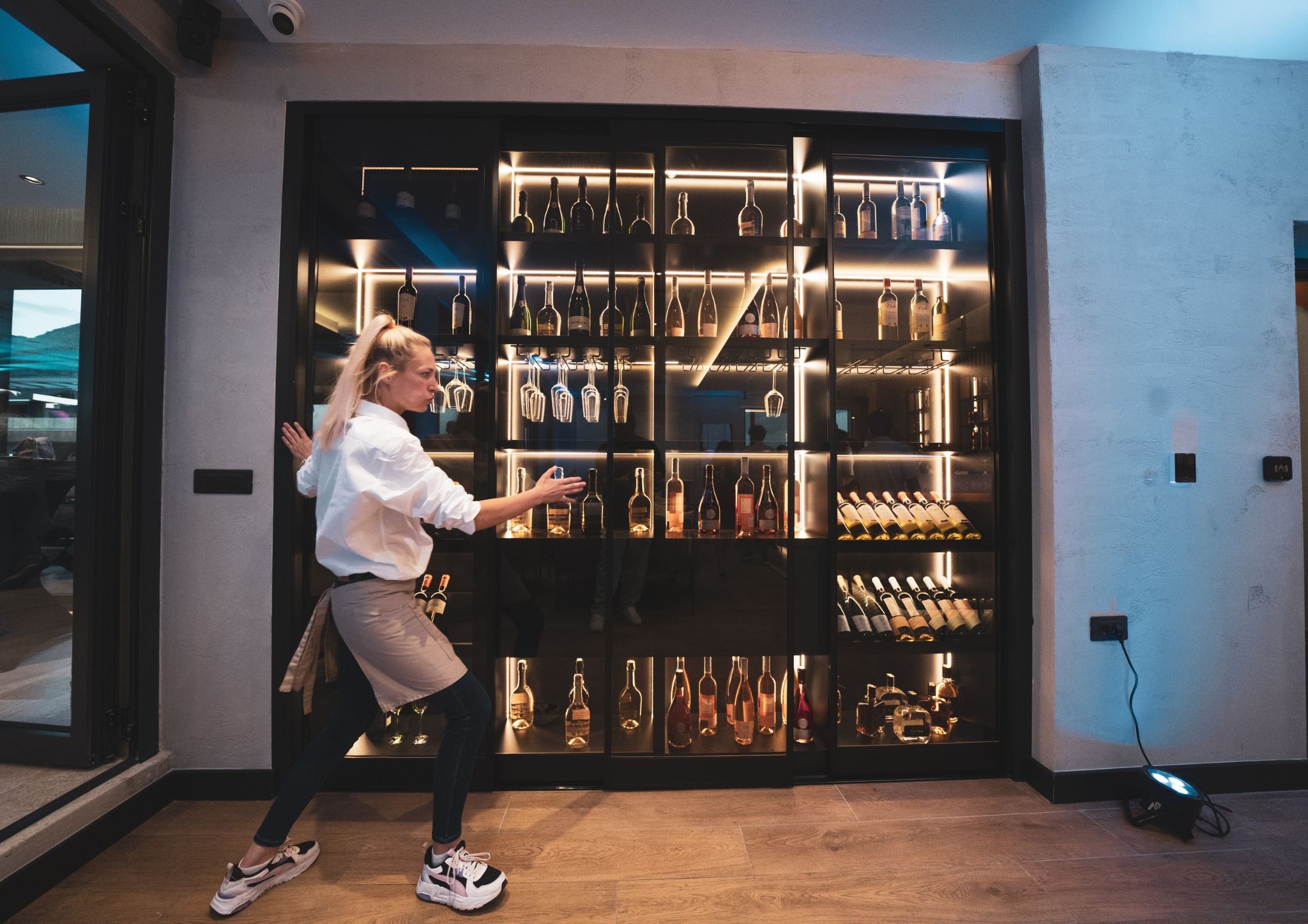Montenegro resembles a painting with its natural beauties. Its mountainous terrain, clear sea and historical towns attract millions of tourists every year. This continuous increase in the number of tourists creates a huge gap in the accommodation and food and beverage sectors. The country’s rapidly developing infrastructure and the government’s support for tourism investments further increase this potential. This dynamic environment allows hotel and restaurant investments made in the right location and with the right concept to pay for themselves in a short time as Royal Blue Resort and Residences and Cielo Rooftop Bar Restaurant. Montenegro offers a wide range of options for investors who want to modernize existing facilities and develop new projects from scratch.
Restaurant Sector in Montenegro: Gastronomy, Concepts and Taste Stops
Montenegro’s cuisine is a rich mosaic blending Mediterranean, Balkan and Turkish influences. The restaurant sector also reflects this diversity.
A. Traditional Montenegrin Cuisine Restaurants (“Konobas”):
Focus: Restaurants that serve authentic Montenegrin cuisine, usually with a rustic and warm atmosphere. “Konobas” are popular with tourists who want to experience the local flavors.
Featured Dishes: Njeguški pršut (smoked ham), Kachamak (mash made with corn flour and cheese), Cicvara (corn flour, cheese and kajmak), Montenegrin fish soup, various cheeses and olive oil dishes. Seafood (fish, octopus, squid) is especially popular on the coast.
Trends: Use of local and organic products, “farm to table” concept, menus paired with local wines.
Investment Potential: Offers high return potential with low operating costs, especially when located close to touristic centers.
B. Restaurants with International Cuisine:
Focus: The increasing international tourist and expat population has increased the demand for Italian, Asian, Turkish, Fast Food and other world cuisines. Such restaurants are especially common in Budva, Tivat and Podgorica.
Trends: Fusion cuisine, fine dining experiences, menus offering vegan and vegetarian options.
Investment Potential: This is a segment in demand in big cities and luxury marina areas. It requires high-quality ingredients and chefs.
C. Cafe and Bar Culture:
Focus: Coffee culture is quite developed in Montenegro. Cafes and bars are places to socialize, do business and relax at all hours of the day.
Trends: Specialty coffee shops, cocktail bars, themed bars, live music venues.
Investment Potential: These can be low-cost and high-yield businesses, especially in areas where young people and digital nomads are concentrated (Podgorica, Budva).

D. Special Concept Restaurants:
Wine Bars and Tasting Venues: Montenegro’s thriving wine industry creates potential for wine tasting tours and wine bars integrated with restaurants.
Food Markets and Street Food: Food markets selling local produce and offering simple, tasty snacks.
Entertainment and Food Combination: Restaurants offering live music, DJ performances or themed events.
General Restaurant Industry Trends:
Sustainability: Using local and seasonal products, reducing food waste.
Digitalization: Online ordering, home delivery services, reservation systems.
Social Media Marketing: Active use of platforms such as Instagram and Facebook to increase the visibility of restaurants.
Healthy Options: Increasing demand for organic, gluten-free, vegetarian and vegan options.
III. Investment Environment and Things to Consider
Montenegro offers several advantages for those who want to invest in the hotel and restaurant sector:
A. Advantages:
EU Membership Process: The EU accession process brings stability and confidence to the country, attracting investors.
Low Corporate Tax: An attractive corporate tax rate of 9%.
Strategic Location: Acts as a bridge between Europe and the Middle East and the Balkans.
High Tourism Growth Potential: Number of tourists and revenues are on the rise.
Visa-free Travel: Visa-free entry opportunity for many nationalities (e.g. 90 days for Turkish citizens).
Government Incentives: Potential incentives for new employment-generating and high-value tourism projects (e.g. VAT refunds, tax reductions).
Real Estate Opportunities: Potential for transformation, especially in historical buildings in old cities or land in rural areas.
B. Investment Process and Legal Framework:
Company Establishment: It is possible to establish a company with a simple and fast process (DOO – Limited Company). It can be completed in a few days.
Required Permits and Licenses:
Business License: Obtained from Municipalities.
Work Permit and Residence Permit: Required for foreign personnel.
Food and Hygiene Permits: Inspected by institutions affiliated to the Ministry of Health.
Fire Safety and Other Technical Inspections: Must be approved by relevant institutions.
Tax Structure:
Corporate Tax: 9% (fixed).
VAT: 21% (standard), 7% (discounted) for tourism accommodation and some food/beverage services.
Taxes and social security contributions on salary (approximately 35-40% of gross salary).
Conclusion
Montenegro offers many opportunities in the hotel and restaurant sector that are yet to be discovered. The country’s rapid rise in tourism, favorable investment environment and natural beauties promise attractive returns for investors who act with the right strategies and a detailed feasibility study. Understanding the market dynamics well, creating a strong business plan and cooperating with local experts will be the keys to success in Montenegro.

